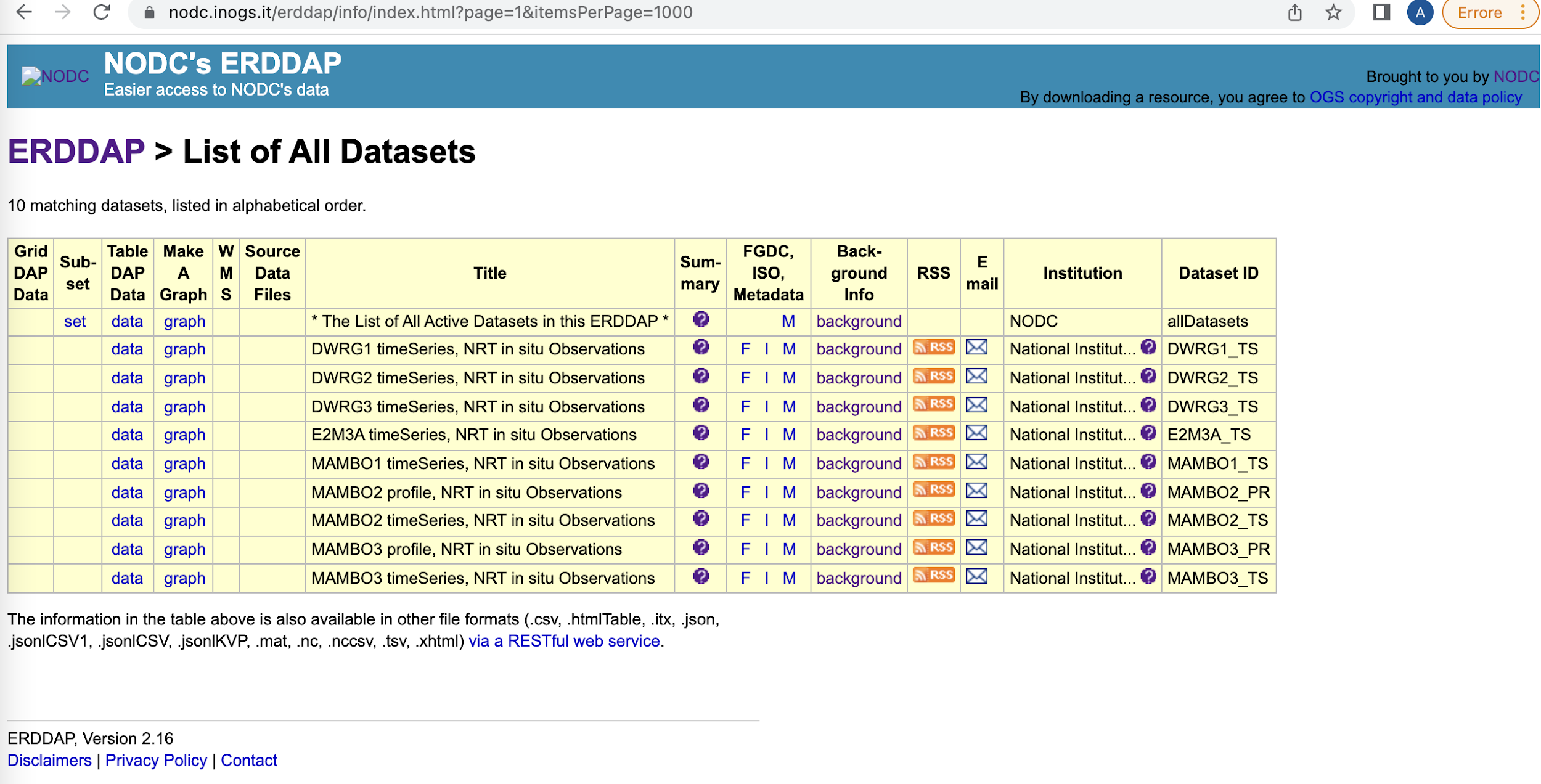Description of the user organisation
The National Institute of Oceanography and Applied Geophysics (OGS) is an Italian research organisation. It develops its mission in the European Research Area and internationally, prioritising the fields of oceanography, geophysics and marine geology. The Institute includes diverse research and development structures articulated in four sections: Oceanography, Geophysics, Seismological Research Centre, and Centre for Maritime Infrastructures Management. The Oceanography section addresses physical, chemical, biological and computational oceanography as well as dynamics of ecosystems.
The National Oceanographic Data Centre (OGS-NODC), operating within the Oceanography section, is part of the International Oceanographic Data Exchange system of the UNESCO's Intergovernmental Oceanographic Commission. The OGS-NODC information system is integrated into SeaDataNet and EMODnet, the European network of distributed databases.
Challenges faced
With over 300,000 water column profiles, in both coastal and deep sea areas, the National Oceanographic Data Centre at OGS manages the most comprehensive marine data storage in Italy. The multidisciplinary archive includes data since 1909 up to now. It ranges from physics to chemistry, from biology and geology to meteorology. Data are mainly collected by Italian institutions within the Mediterranean Sea basin, but also by other countries within neighbouring sea basins. Near real-time data are consistently integrated into the historical archive.
OGS was planning to make it easy to access the near real-time data by updating its data management infrastructure. For this purpose, the Institute decided to use the latest data publishing and interoperability services. Following the recommendation of the Global Ocean Observing System - Observations Coordination Group (GOOS OCG), OGS resolved to install and run the Environmental Research Division Data Access Program (ERDDAP) data server. ERDDAP enables users to easily download subsets of scientific datasets in common file formats and make graphs and maps. The ERDDAP program serves many types of scientific data; the OGS installation is specifically for near real-time oceanographic data. OGS were interested in having training and technology transfer support to speed up the improvement.
EMODnet services used
EMODnet Physics was one of the first pan-European Marine Data Management infrastructures to adopt and work on the ERDDAP technology and soon become a proactive partner in the ERDDAP development community by adding EMODnet oriented features and developing easy to deploy packages (e.g. Dockers). The EMODnet Physics team was pleased to help OGS colleagues to adopt the technology and guide them towards the deployment and configuration.
Impact of EMODnet
OGS is a leading institute in Marine Science and Earth Sustainability Research. Among others, the Institute has the mission to develop long term actions to support a supply chain from scientific results (research) to their industrialization (companies), to their use (end users). The development and adoption of the most recent ICT technologies is crucial to pursue this mission.
The training and technology assistance brought by EMODnet Physics enables OGS to promptly advance its data management system. It results in multiple benefits for both users and data providers. Through ERDDAP, users can access data from sources of their choice without reformatting data. Moreover, ERDDAP provides web accessible urls for data download, and subsetting of data both temporally and spatially via other software packages. Among other benefits, providers can make forthcoming data to users in many different formats and machine to machine services. Lastly, ERDDAP offers a data brokerage service, reading from many different types of files, databases and services.
Media

